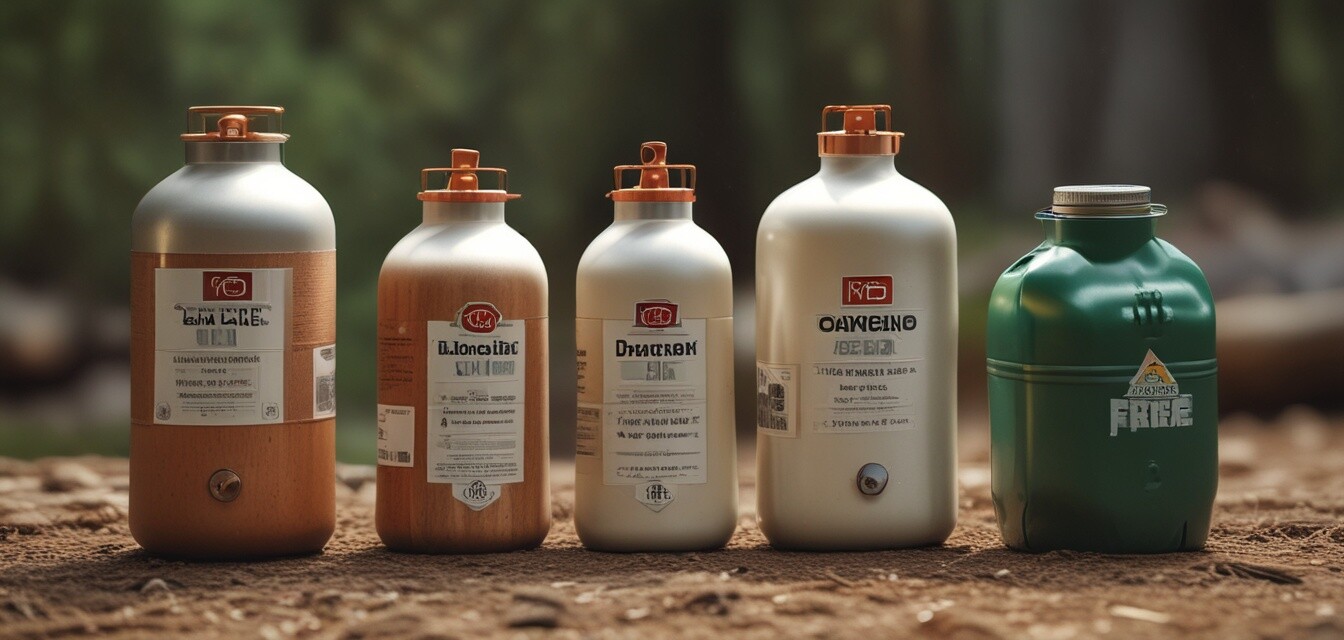
Choosing the Right Cooking Fuel for Camping
Key Takeaways
- Understand the pros and cons of each cooking fuel type.
- Choose a fuel based on trip duration and cooking needs.
- Always consider portability and storage space.
- Factor in local weather conditions and emergency scenarios.
- Optimize your camping experience by using the right fuel source.
When embarking on a camping trip, one of the most crucial decisions you will face is choosing the right cooking fuel. Whether you're preparing a hot meal after a long hike or a simple snack, the fuel type can greatly influence your cooking experience. This guide will outline the various options available, their pros and cons, and help you select the best cooking fuel based on the duration and type of your camping trip.
Types of Cooking Fuels
Let's get into the most commonly used cooking fuels for camping:
| Fuel Type | Pros | Cons | Best For |
|---|---|---|---|
| Propane |
|
|
Short trips, family camping |
| Butane |
|
|
Lightweight backpacking, solo trips |
| White gas |
|
|
Extended trips, remote areas |
| Wood |
|
|
Long-term camping, survival training |
| Alcohol |
|
|
Short trips, lightweight adventurers |
Factors to Consider When Choosing Cooking Fuel
When deciding on the best cooking fuel for your camping adventures, consider the following factors:
- Trip Duration: Longer trips may require more fuel and reliable energy sources.
- Cooking Needs: Consider what meals you plan to prepare. Complex dishes might need certain fuels with more consistent heat.
- Weight and Portability: If you’re backpacking, lightweight options like butane or alcohol may be preferable.
- Weather Conditions: Cold weather camping may necessitate fuels like propane or white gas that perform well in harsh conditions.
- Storage Space: Think about how much room you have for packing your gear and fuel.
Frequently Asked Questions
1. Can I mix different fuel types?
Generally, it’s not advisable to mix different fuel types. Each stove is designed for specific fuel types, and mixing them can lead to safety hazards and inefficient cooking.
2. How do I store cooking fuel safely?
Always store fuel canisters upright in a cool, dry place away from heat sources. Ensure they are securely packed to avoid punctures or leaks.
3. What should I do if my fuel runs out while camping?
Always carry extra fuel appropriate for your stove. In case of emergency, look for other cooking options like finding dry wood or using an alternative heat source.
Conclusion
Choosing the right cooking fuel for camping can greatly enhance your outdoor cooking experience. By understanding the available options and considering your specific needs, you can make an informed decision that suits your camping style. Be sure to check our Camping Buying Guides for more tips and recommendations to prepare for your next adventure!
Pros
- Enhanced cooking flexibility for various meal types.
- Ability to select the best fuel based on trip specifics.
Cons
- May require additional planning for specific fuel types.
- Storing and carrying fuel can add weight and complexity.